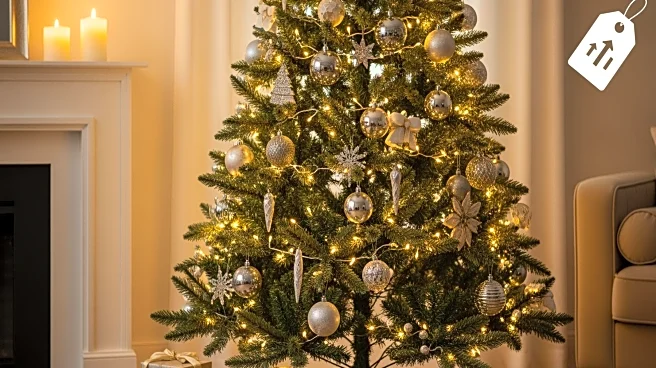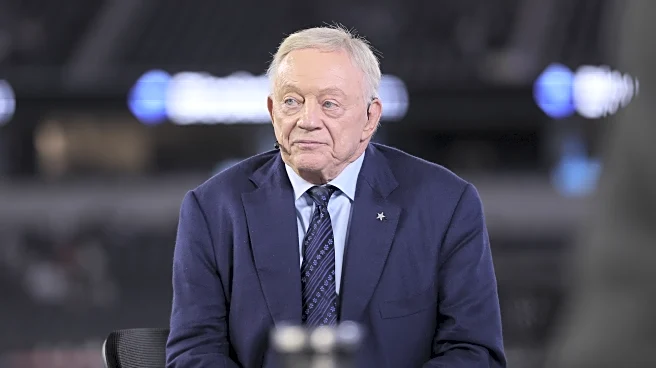What's Happening?
Artificial Christmas trees are expected to cost 10% to 20% more this holiday season due to increased tariffs on imports. The tariffs, which have fluctuated between 20% and 30%, have led vendors to import fewer
trees, reducing supply. This has resulted in higher prices for consumers and fewer options for those purchasing later in the season. The tariffs have also affected the cost of Christmas lights, which could see a price increase of up to 63%.
Why It's Important?
The increased costs of artificial Christmas trees and decorations highlight the broader impact of tariffs on consumer goods. As these items are primarily manufactured overseas, the tariffs directly affect their pricing, impacting consumer spending during the holiday season. Retailers and importers are forced to adjust their supply chains and pricing strategies, which could lead to reduced consumer choice and higher prices. This situation underscores the interconnectedness of global trade policies and domestic consumer markets.
What's Next?
Retailers may continue to seek alternative supply sources outside of China to mitigate tariff impacts. Consumers might shift towards purchasing live trees, which are not subject to the same tariffs, potentially affecting market dynamics. The ongoing trade tensions and tariff policies will likely remain a significant factor in pricing and availability of imported goods, influencing future holiday seasons and consumer behavior.









